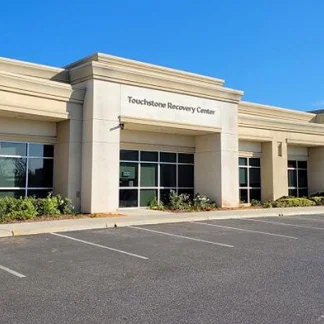Antioch Substance Abuse Programs
Antioch Substance Abuse Programs is an office-based addiction and mental health ...
Touchstone Recovery Center stands as an accredited substance abuse rehab center in Fresno, CA. It provides a comprehensive, individualized, and evidence-based approach to working with substance abuse and mental health disorders.
Touchstone Recovery Center promotes personal growth and development by utilizing a person-centered approach. The center offers a wide range of treatment programs including the following:
Understanding the physiological challenges of addiction, Touchstone offers a medical detoxification program. This initiative ensures individuals can safely withdraw from drugs under the watchful eyes of medical professionals, paving the way for further treatment.
Touchstone’s residential treatment offers 24/7 monitoring in a nurturing environment. Residential treatment is comprised of continued medication management by licensed professionals, group therapy, individual counseling, and family counseling.
Balancing intensive treatment with a semblance of routine, the Partial Hospitalization Program at Touchstone provides clients with rigorous therapy while allowing them to remain connected to their daily lives.
For those who require consistent therapeutic intervention without the constraints of a residential setting, the Intensive Outpatient Program (IOP) at Touchstone is the ideal solution. It balances rigorous therapy sessions with the ability of clients to maintain aspects of their daily lives.
Recognizing the ripple effects of addiction, Touchstone has designed a family program. This initiative aims to heal not just the individual, but also their loved ones, fortifying family bonds and fostering understanding and support.
Contact us for more information: (559) 298-6711

Connect with Touchstone Recovery Center by calling their admissions team directly.
(559) 298-6711 Website Get DirectionsThe Joint Commission, formerly known as JCAHO, is a nonprofit organization that accredits rehab organizations and programs. Founded in 1951, the Joint Commision's mission is to improve the quality of patient care and demonstrating the quality of patient care.
Joint Commission Accreditation: Yes
State Licenses are permits issued by government agencies that allow rehab organizations to conduct business legally within a certain geographical area. Typically, the kind of program a rehab facility offers, along with its physical location, determines which licenses are required to operate legally.
State License: California License Number: 100076BP
Research clearly demonstrates that recovery is far more successful and sustainable when loved ones like family members participate in rehab and substance abuse treatment. Genetic factors may be at play when it comes to drug and alcohol addiction, as well as mental health issues. Family dynamics often play a critical role in addiction triggers, and if properly educated, family members can be a strong source of support when it comes to rehabilitation.
Group therapy is any therapeutic work that happens in a group (not one-on-one). There are a number of different group therapy modalities, including support groups, experiential therapy, psycho-education, and more. Group therapy involves treatment as well as processing interaction between group members.
In individual therapy, a patient meets one-on-one with a trained psychologist or counselor. Therapy is a pivotal part of effective substance abuse treatment, as it often covers root causes of addiction, including challenges faced by the patient in their social, family, and work/school life.
Group therapy is any therapeutic work that happens in a group (not one-on-one). There are a number of different group therapy modalities, including support groups, experiential therapy, psycho-education, and more. Group therapy involves treatment as well as processing interaction between group members.
In individual therapy, a patient meets one-on-one with a trained psychologist or counselor. Therapy is a pivotal part of effective substance abuse treatment, as it often covers root causes of addiction, including challenges faced by the patient in their social, family, and work/school life.
In individual therapy, a patient meets one-on-one with a trained psychologist or counselor. Therapy is a pivotal part of effective substance abuse treatment, as it often covers root causes of addiction, including challenges faced by the patient in their social, family, and work/school life.
Antioch Substance Abuse Programs is an office-based addiction and mental health ...
Central California Recovery offers office-based addiction and mental health trea...
Adolescent Behavioral Clinic is a private rehab located in Fresno, California. A...
California Mental Health Drug and Alcohol Program is a private rehab located in ...